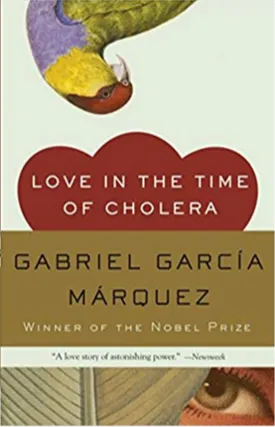Gabriel Garcia Marquez
Gabriel Garcia Marquez is an internationally acclaimed author who is best known for his work blending magical realism with political and social commentary. He won the Nobel Prize in Literature in 1982. He often referred to himself as a Colombian so as to emphasize his Latin-American roots and identity.
Garcia Marquez was born on March 6, 1927, in the small Colombian town of Aracataca. His parents temporarily relocated to Baranquilla in his youth, but he returned to Aracataca in the summer and was steeped in its culture and folklore. Many of his novels draw on the descriptions of events and people from his childhood in this small Caribbean town.
Garcia Marquez attended some of Colombia’s top universities in Bogotá and Cartagena, but dropped out before graduating to pursue a career as a journalist. He worked for newspapers in Venezuela, Colombia, Mexico and Ecuador. His journalistic articles won the admiration of other journalists and the impact of his work was reflected in his novels.
Garcia Marquez’s writing style is often referred to as "magic realism". This is a combination of contrasting elements: the mundane and the fantastic, the real and the surreal, fact and fiction. His 1967 novel "One Hundred Years of Solitude" broke new ground as one of the first major works of magic realism.
The author is perhaps best known for "Love in the Time of Cholera" (1985) and "The General in his Labyrinth" (1989). “Love in the Time of Cholera” is a love story spanning five decades and featuring Florentino Ariza and Fermina Daza, two characters who are separated and reunited by destiny. “The General in his Labyrinth” is inspired by the fate of the legendary 19th century military leader and national hero Simón Bolívar. Through these novels, Garcia Marquez explores themes such as loyalty and commitment, love and memory, and ultimately the resilience of the human spirit.
Garcia Marquez also wrote several short stories that were collected in multiple volumes such as "No One Writes to the Colonel" (1961) and "Strange Pilgrims" (1992). He also wrote a number of anthologies including "News of a Kidnapping" (1996) and "Living to Tell the Tale" (2002).
Garcia Marquez’s novels, novellas and stories were translated into numerous languages and sold millions of copies worldwide. He wrote 22 books in total and won the Nobel Prize in Literature in 1982. He also won numerous other literary awards such as the Prince of Asturias Award for Literature in 1986, the Galician Language Award in 1989 and the Lettre Ulysses Prize for Literary Reportage in 1995.
In Garcia Marquez’s work, readers find themselves navigating a dream-like world in which reality is ever shifting. Emotion is heightened and the impermanence of life is explored. His books are often a mix of fiction and reality, fantasy and history, and magical and mundane elements. Themes of love and loss, tragedy and resilience, and cultural identity and displacement are ever-present in Garcia Marquez’s work.
More than anything else, Garcia Marquez’s vivid writing, his lush imagination and his powerful emotions are what make his work so memorable and unique. His books are sure to leave readers changed and with a new understanding of the human condition.

